Question And Answer
Publications
Articles, publications, books, tools and multimedia features from the U.S. Institute of Peace provide the latest news, analysis, research findings, practitioner guides and reports, all related to the conflict zones and issues that are at the center of the Institute’s work to prevent and reduce violent conflict.
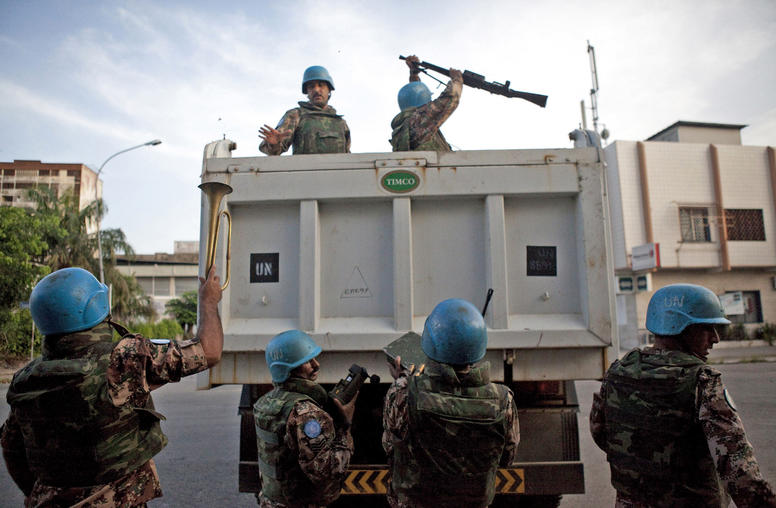
Preventing Sexual Exploitation and Abuse by Male Peacekeepers
Sexual exploitation and abuse by United Nations peacekeeping forces first came to international attention more than a quarter century ago. Despite numerous UN policy responses, the problem persists, harming individuals, jeopardizing missions, and undermining the credibility and legitimacy of UN peacekeeping operations. This report addresses the question of why more progress has not been made in preventing these violations and draws attention to ways in which prevention efforts can be strengthened and made more effective.

Kathleen Kuehnast on the Inaugural Women Building Peace Award
USIP’s Kathleen Kuehnast discusses the inspiring work of Women Building Peace Award recipient Rita Lopidia of South Sudan, as well as the other finalists, praising “the incredible resilience that each of these 10 women has brought to situations of inequality, of extreme violence, and despair.”
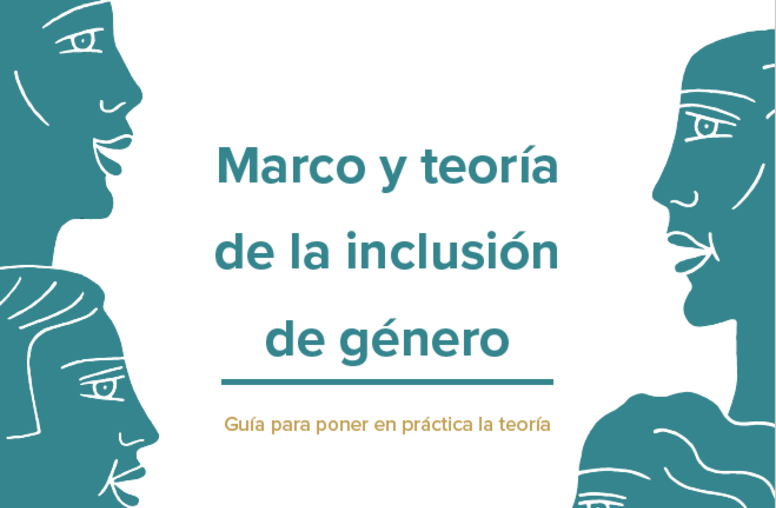
Gender Inclusive Framework and Theory (Spanish)
La guía Marco y teoría de la inclusión de género (GIFT) es una herramienta accesible y exhaustiva que facilita la integración del análisis de género en el diseño de proyectos.
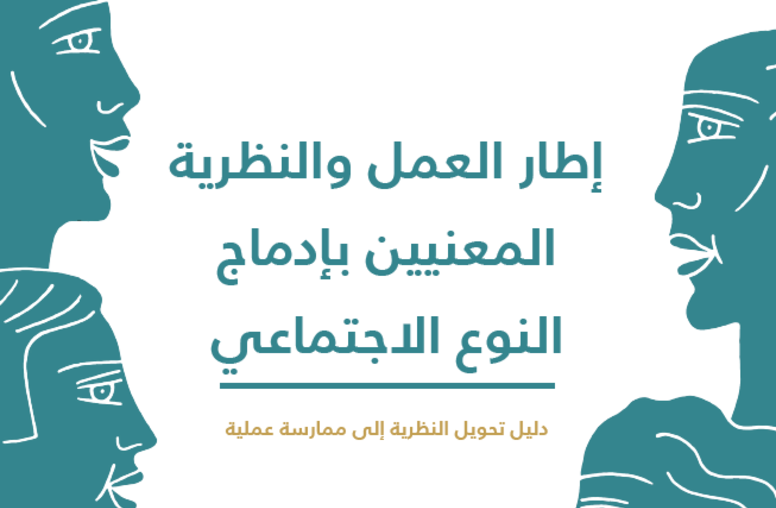
Gender Inclusive Framework and Theory (Arabic)
(Arabic) The Gender Inclusive Framework and Theory (GIFT) guide is an approachable and thorough tool that facilitates the integration of gender analysis into project design. Because peacebuilding work is context dependent, the GIFT puts forth three approaches to gender analysis – the Women, Peace and Security Approach; the Peaceful Masculinities Approach; and the Intersecting Identities Approach – that each illuminate the gender dynamics in a given environment to better shape peacebuilding projects.

Belquis Ahmadi on Afghan Women and the Peace Process
Since 2001, Afghan women have assumed larger roles in society—becoming teachers, doctors and government officials. With intra-Afghan talks expected to begin this month, USIP’s Belquis Ahmadi says it’s important the Taliban “accept the reality that today’s Afghanistan is very different from the country they ruled” when it comes to women’s rights.
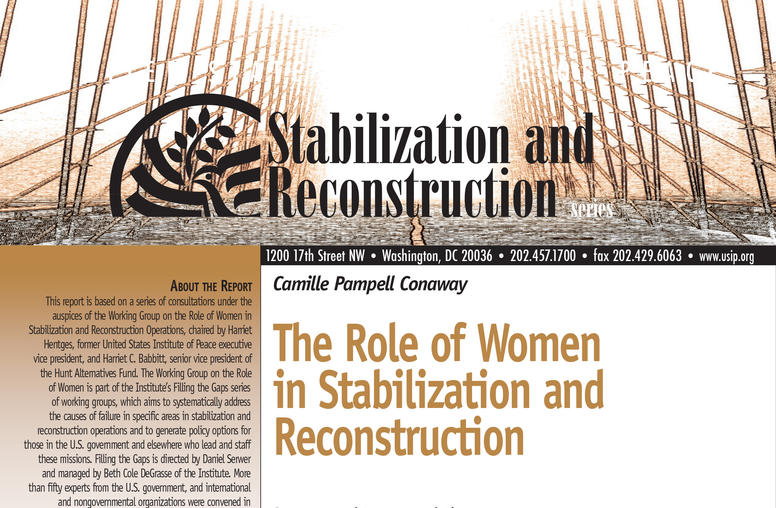
The Role of Women in Stabilization and Reconstruction
It is widely recognized that women and young people are the primary victims of conflict. However, no overarching strategy, mandate, or program exists within the U.S. government to ensure the inclusion of women in postwar stabilization and reconstruction operations.
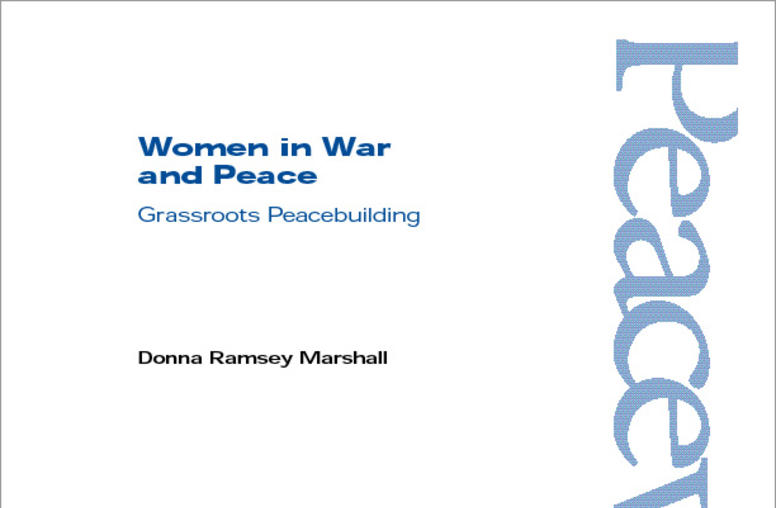
Women in War and Peace: Grassroots Peacebuilding
While much of the work of conflict resolution focuses on the government or public level, the resolution of contemporary conflict is very much a holistic process that is simultaneously conducted at the private, grassroots level. Many of the efforts under way to sustain peace in countries and regions beset by or emerging from violent conflict are undertaken by grassroots organizations formed by those whose lives are most directly and significantly affected by the conflict. A substantial proport...
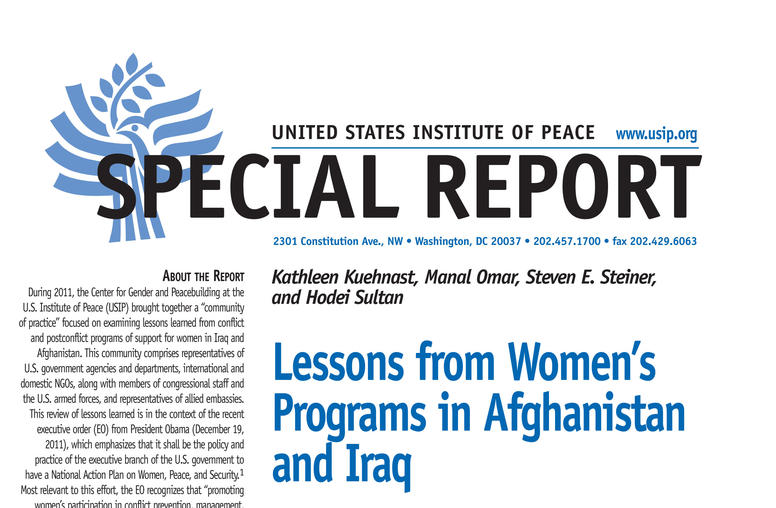
Lessons from Women's Programs in Afghanistan and Iraq
Despite years of efforts aimed at expanding women’s rights and opportunities in Iraq and Afghanistan, women in those countries face major obstacles in consolidating these gains. Recognizing that women’s empowerment contributes significantly to stability, USIP convened experts to assess what has been learned in developing women’s programs in Afghanistan and Iraq and to establish best practices for future programs in conflict zones.
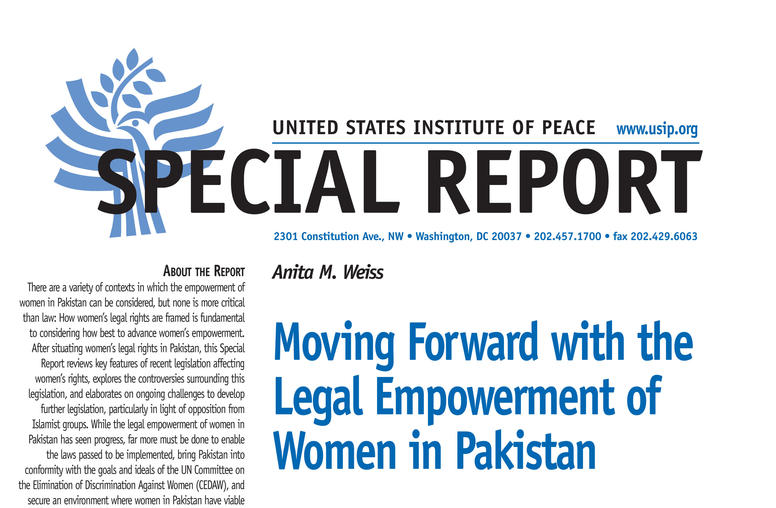
Moving Forward with the Legal Empowerment of Women in Pakistan
There are a variety of contexts in which the empowerment of women in Pakistan can be considered, but none is more critical than law: How women’s legal rights are framed is fundamental to considering how best to advance women’s empowerment. After situating women’s legal rights in Pakistan, this Special Report reviews key features of recent legislation affecting women’s rights, explores the controversies surrounding this legislation, and elaborates on ongoing challenges to develop further legis...
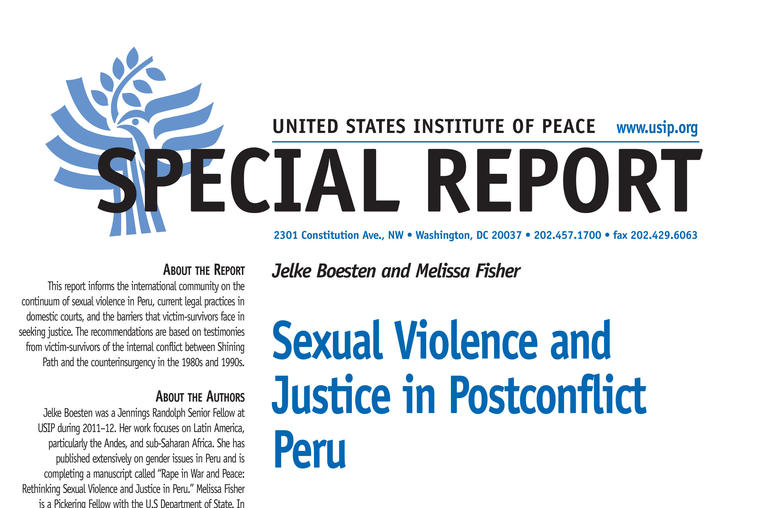
Sexual Violence and Justice in Postconflict Peru
Wartime sexual violence is rooted in preconflict inequalities and also perpetuates peacetime violence, as the case of Peru shows. Peru can begin to break this cycle of violence by treating rape in war as a crime against humanity.